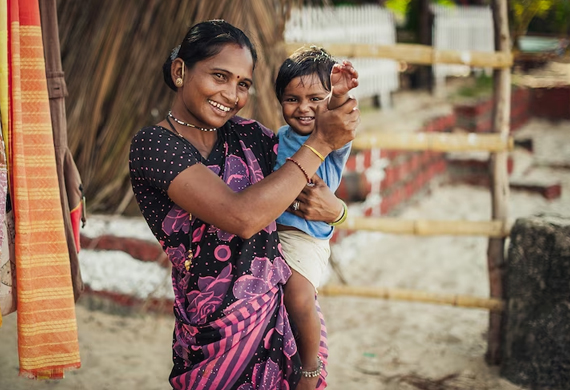
G20 Urged to Act Swiftly on Global Health and Empowerment of Women, Children & Adolescents
By: WE Staff | Monday, 11 September 2023
Representing two-thirds of the world's population, the G20 nations face a pressing call to action to enhance the health and well-being of women, children, and adolescents across the globe. The grim reality reveals that nearly two million preventable deaths occur annually among these vulnerable groups within the G20 countries, including the heartbreaking loss of newborns and stillbirths.
The 'four Cs': COVID-19, conflict, climate change, and the cost of living crisis have magnified these healthcare challenges, with a disproportionate impact on women and children. Alarmingly, the climate emergency alone has claimed over 150,000 lives globally, with a staggering 88% of this burden falling upon children. What's more, a shocking 80% of those displaced by climate-induced disasters are women, underscoring the harsh disparities and injustices faced by women worldwide.
Gender disparities continue to persist, with women consistently earning less than their male counterparts, even when they share similar education levels. This unsettling trend perpetuates the 'feminization of poverty,' hindering women's economic empowerment and overall well-being.
The current G20 presidency, held by India, has demonstrated a strong commitment to addressing these pressing issues. India's focus on achieving universal health coverage, promoting digital health solutions, tackling the climate-health nexus, and enhancing pandemic preparedness is commendable.
Crucially, the G20 countries must prioritize cross-cutting financing to bolster health systems, ensure access to essential healthcare services, and combat social determinants such as poverty and gender inequality. Additionally, investments in both physical and digital infrastructure from a gender perspective could alleviate the burden of unpaid work, foster economic growth, and reduce the digital gender gap.
Many countries are grappling with maintaining pre-pandemic levels of health spending, which directly impacts the health of women, children, and adolescents globally. A collective global effort is needed to assist these nations in attracting development assistance for health and devising sustainable solutions to ease their debt burdens, and the G20 must advocate for this cause.
Furthermore, robust data systems are imperative for the effective implementation of policies and research. Given that G20 countries collectively account for approximately 85% of global GDP and two-thirds of the global population, they are well-positioned to lead the advancement of health technologies and vaccines. Meaningful engagement of women, children, and adolescents in these endeavours is essential.
Investing in early childhood, along with family-friendly policies and universal social protection, holds the key to enhancing cognitive capital and fostering inclusive economic growth. Addressing youth unemployment within the G20 necessitates a focus on developing essential skills, including digital literacy and environmental consciousness.






